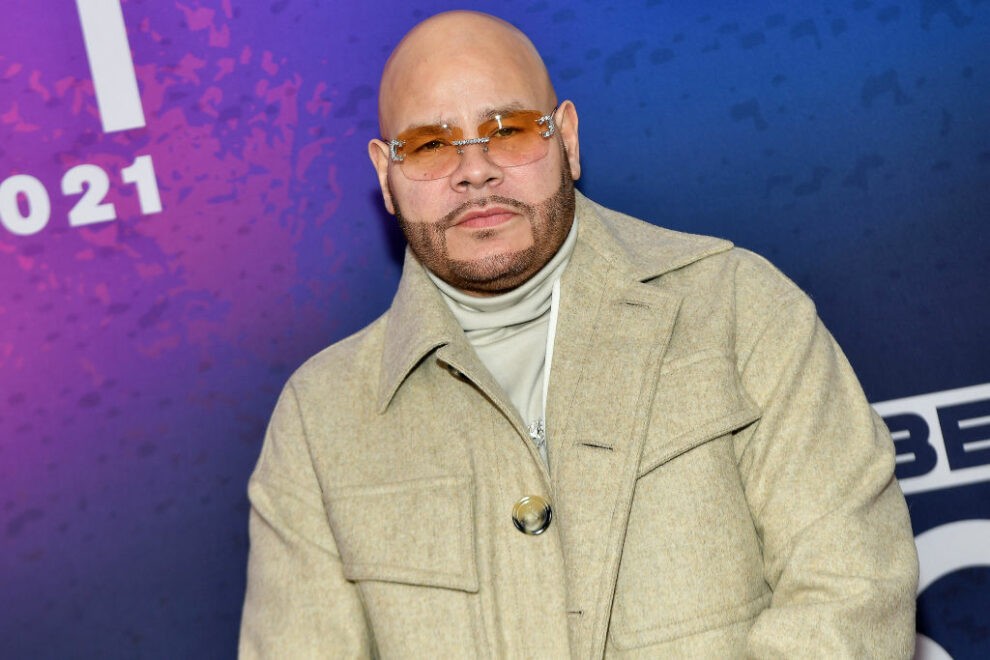Latino parents don’t want to be regular parents. We want to be cool parents.
A lot of us grew up listening to raunchy music at an early age. By that notion, we give our own kids a pass to listen to music with cuss words and adult themes. We tell ourselves “I was listening to 2 Live Crew in 6th grade. I turned out ok.” Then we turn up the volume on the way to drop our kids off at school.
That part is not what I’m here to discuss. Vibe out with your kids and listen to what you want. If you’re up early and taking your kids to school, you probably did turn out ok.
What we as Latino parents need to do is stop being lazy and take the final step when listening to music with our kids. If we’re with our kid vibing to a song and the singer/rapper suddenly uses the N-word, it’s our duty to hit pause, turn to our kids and share some variation of this important message:
“I know you like the music. So do I. But when we sing along, we can’t say the N-word. That word is off limits to us Latinos.”
It’s a difficult task because we want to be cool parents. A lot of us grew up in a time when it was acceptable to see Latino artists use that word.
For my era, listening to Latino rappers like Cypress Hill, Fat Joe and The Beatnuts freely and openly use that word in their music made the word seem cool and, unfortunately, accessible.
I’m not here to analyze why those particular artists felt license to say it. From my understanding, each of the aforementioned artists comes from Afro-Latino backgrounds. That suggests the word’s usage was acceptable for them. Some folks would argue it’s still unacceptable. That’s not my point.
My point is simple: there is a lot of trauma and healing that needs resolution within our Black and Brown communities. Part of the trauma is due to Latino parents’ failure to enforce zero tolerance policies around our kids’ use of the N-word.
There’s no one explanation on how we got to this point. Like everything related to Black and Brown identity, it’s a complex web. I can only share my personal observations as a Latino parent who has raised very young children during the pandemic.
We as Latino parents are still struggling to help our children cope with the fallout from pandemic policies that mandated distance learning. While distance learning was required to protect the health and safety of humanity as a whole, the disruption severely damaged our children’s social, emotional and academic development. We won’t know the full ramifications for decades, but we are already seeing some of the splinter effects.
Three years after the Pandemic hit, parents are overwhelmed with helping our children re-learn how to acclimate back to in person school life. We are prioritizing our children’s most essential needs for proper in class instruction and emotional wellness. As a result, we may have been blinded to signs of trauma that weren’t as prevalent, including attitudes around colorism in the Latino community.
We bypassed our children’s needs to be taught that even just singing the N-word in a song is a form of racism. We failed to teach them it’s unacceptable, regardless of the artist’s intentions when using the word.
Latino parents, we have to recalibrate our efforts to include teaching our kids that words can critically wound others. Words can make others feel unsafe and threatened. Even if those words are a part of our daily lives in the form of the music and media we consume. It’s time for us as parents to take accountability.
I was recently reminded of the importance of teaching our Latino children not to say the N-word at a school assembly. Brandon Brown, CEO of the company Schoolyard Rap, has toured the country performing music and conducting workshops specifically aimed at teaching children about the contributions of Blacks and Latinos to American society.
One of his lessons, in the form of a rap song, includes a very deliberate and direct instruction for Latinos on usage of the N-word:
“I don’t care if rappers say it, it’s not okay/if you ain’t black, don’t say, N-I-G-G-A/ I don’t even like it when we use that word, but I get how we flipped it from a negative/ but now different ethnicities are using that word, to feel cool, hood connected or accepted…”
Brown is empathetic in his approach. He understands how young Latinos have become comfortable using the word for a variety of reasons – maybe it’s Black friends who have given them a pass. Maybe it’s popular culture. However, Brown doesn’t excuse usage of the word amongst non-Blacks.
Brown is doing the work for his Black community, which post-pandemic is struggling to reclaim a word that has traumatized them for generations.
As noble as Brown’s efforts are, it shouldn’t be left to the victims to do the heavy lifting in pursuit of basic dignity and respect. Latino parents, let’s do our part to help our Black brothers and sisters – and more importantly, their children – feel safe around us.
When it comes to the N-word, let’s hit pause, take a moment, and explain to our kids why that word is off limits to us Latinos. Now and forevermore.
That will help make us cool parents.












